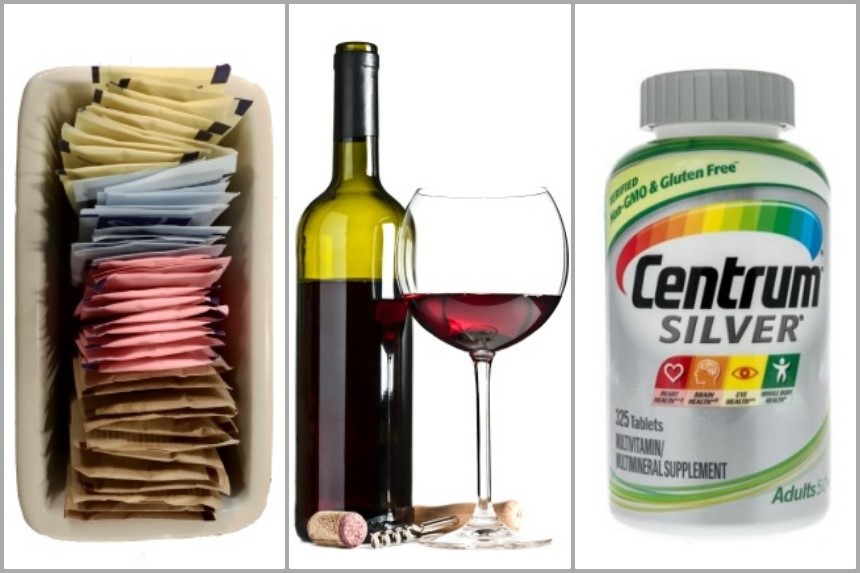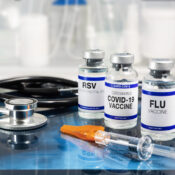“Your Health Checkup” is our online column by Dr. Douglas Zipes, an internationally acclaimed cardiologist, professor, author, inventor, and authority on pacing and electrophysiology. Dr. Zipes is also a contributor to The Saturday Evening Post print magazine. Subscribe to receive thoughtful articles, new fiction, health and wellness advice, and gems from our archive.
Order Dr. Zipes’ books, Ari’s Spoon, a new novel, as well as Bear’s Promise and Damn the Naysayers, A Doctor’s Memoir. Check out his website at dougzipes.com.
Use margarine instead of butter.
Use hormone replacement after menopause.
Use antiarrhythmic drugs like quinidine after heart attacks.
The statements noted above are only three of many incorrect medical recommendations that were based on assumptions, incomplete or incorrect data, or unfounded opinions. Medical recommendations change over time as medical scientists acquire new knowledge. I agree with what Winston Churchill once said: “I’d rather be right than consistent.”
Aligned with Churchill’s conclusion, three new observations have changed how we think about synthetic sugar substitutes, alcohol, and multivitamins.
Synthetic Sugar Substitutes
I use synthetic sugar substitutes (SSSs) in my coffee. They are much sweeter than sugar (on an equal weight basis) and have little or no caloric value. While SSSs can help reduce overall calorie intake, recent information raises questions about their safety despite FDA approval for some such as aspartame (Equal), sucralose (Splenda), saccharin (Sweet’N Low), steviol glycosides (Truvia), and others. Short term use (less than 3 months) can lead to weight loss, while longer term use (6-18 months) correlate with an increased risk of obesity, type 2 diabetes, several cardiovascular diseases — including stroke — and death from any cause.
Unintentional side effects of SSSs include triggering the body’s insulin response and an increased craving for sweet foods, which can lead to weight gain; alteration of gut flora, which can lead to digestive issues; and damage to DNA and increased gene activity linked to inflammation.
What should you do?
- If using SSSs, limit use to just a few packets a day.
- Use stevia leaf, which does not contain erythritol and is generally regarded as safe.
- Use granulated, raw, or brown sugar, or natural sweetener like honey, but limit total sugar to 50 grams a day (1 tsp = 4 grams).
- Avoid energy drinks, sweet tea, soda, and fruit juices containing SSSs.
- Avoid “healthy” foods with added sugar or SSSs.
- Use whole fruits as sweeteners.
- Read the labels!
Alcohol
In a recent column, I came out strongly against drinking alcohol, stating, “Recent data support the conclusion that no amount of alcohol is beneficial, and any amount is harmful to your heart and other organs in proportion to the frequency and quantity consumed.” I may have to modify those words.
A study of 53,000 adults just published demonstrated that alcohol in small to moderate amounts (1-14 drinks a week) was associated with a decrease in major adverse cardiovascular events, in part by lowering brain activity in a section that triggers a stress network known for its association with cardiovascular disease (CVD) (SEP 12/6/22). The benefit was even greater in persons with a history of anxiety. However, an increase in cancer risk balanced any CVD benefits.
Alcohol supporters should not jump for joy yet. The senior author of the study, cardiologist Ahmed Tawakol, M.D., stated, ““There is no safe level of alcohol consumption,” because the cancer risk was at the same level as the CVD benefit, and higher amounts of alcohol clearly increased the CVD risk. One of the authors stated, “…no abstainer should start to drink, even in moderation, solely for the purpose of improving his/her health outcomes.” I would agree.
Future studies should explore other ways to reduce stress-associated neural networks without elevating cancer risk, such as the effect of exercise, meditation, yoga and pharmacologic therapies that might induce CV benefits.
Vitamins
In a column I wrote three years ago about dietary supplements, I noted that half of American adults consume at least one dietary supplement daily and that randomized clinical trials of vitamin and mineral supplements have not demonstrated clear benefits in preventing chronic diseases unrelated to nutritional deficiency.
I may have to retract those words.
A well-done randomized study by Harvard researchers in 3,562 adults at least 60 years-old showed that daily multivitamin supplementation (Centrum Silver) compared with placebo improved memory, with changes apparent at one year. Improvement plateaued at that time but was sustained over the three years of the trial. People with cardiovascular disease seemed to manifest a particularly strong benefit. The mechanism responsible is yet to be determined but may be due to replenishing micronutrients in those with deficiencies, as well as slowing age-related memory loss and cognitive aging. The authors speculate that likely candidates include vitamin B12 and other B vitamins, vitamin D, lutein, zinc, and magnesium. This is the second randomized trial showing similar results, adding to the evidence that the benefits of daily multivitamin intake are probably true.
My conclusion is that multivitamins should not be viewed as a substitute for a healthy lifestyle but taken in addition to healthy living.
Readers should not throw up their hands in frustration (as my wife just did!) but go with the flow and modify their behavior as new discoveries replace old dictums. That’s called progress.
Become a Saturday Evening Post member and enjoy unlimited access. Subscribe now



